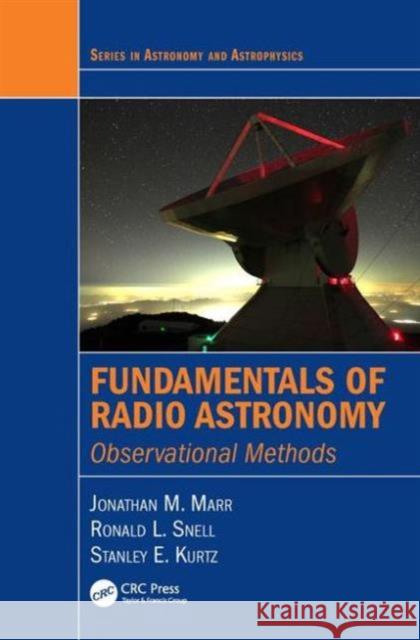Fundamentals of Radio Astronomy: Observational Methods » książka
Fundamentals of Radio Astronomy: Observational Methods
ISBN-13: 9781420076769 / Angielski / Twarda / 2015 / 352 str.
Fundamentals of Radio Astronomy: Observational Methods
ISBN-13: 9781420076769 / Angielski / Twarda / 2015 / 352 str.
(netto: 489,77 VAT: 5%)
Najniższa cena z 30 dni: 482,79
ok. 22 dni roboczych.
Darmowa dostawa!
As evidenced by five Nobel Prizes in physics, radio astronomy in its 80-year history has contributed greatly to our understanding of the universe. Yet for too long, there has been no suitable textbook on radio astronomy for undergraduate students.
Fundamentals of Radio Astronomy: Observational Methods is the first undergraduate-level textbook exclusively devoted to radio astronomy telescopes and observation methods. This book, the first of two volumes, explains the instrumentation and techniques needed to make successful observations in radio astronomy. With examples interspersed throughout and problems at the end of each chapter, it prepares students to contribute to a radio astronomy research team.
Requiring no prior knowledge of astronomy, the text begins with a review of pertinent astronomy basics. It then discusses radiation physics, the collection and detection of astronomical radio signals using radio telescopes, the functioning of various components of radio telescopes, and the processes involved in making successful radio observations. The book also provides a conceptual understanding of the fundamental principles of aperture synthesis and a more advanced undergraduate-level discussion of real-world interferometry observations.
Web Resource
A set of laboratory exercises is available for download on the book s CRC Press web page. These labs use the Small Radio Telescope (SRT) and the Very Small Radio Telescope (VSRT) developed for educational use by MIT s Haystack Observatory. The web page also includes a Java package that demonstrates the principles of Fourier transforms, which are needed for the analysis of interferometric data."











